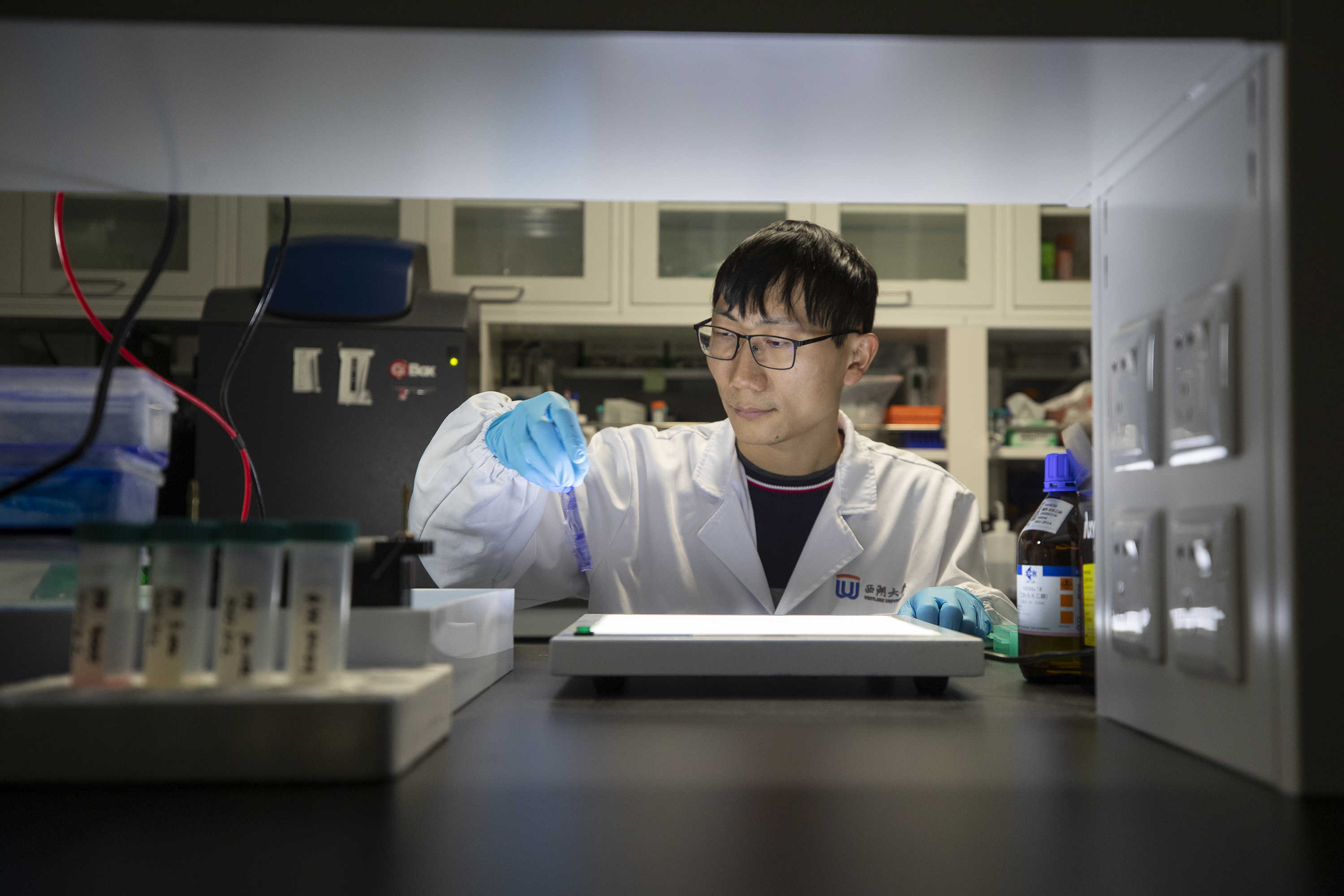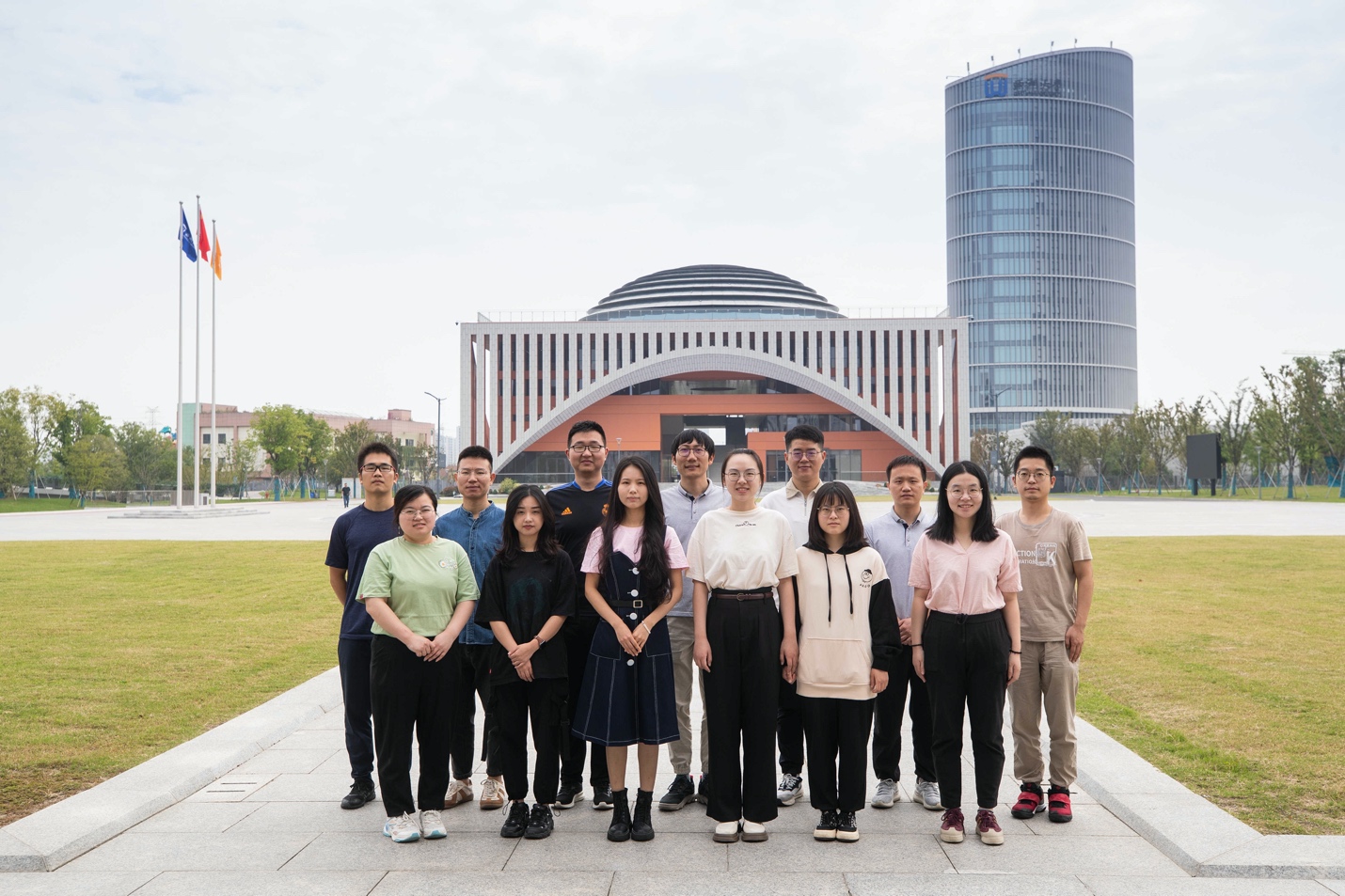




Search websites, locations, and people

Prof. Wu's Work on Chromatin and Histones: Unraveling Complexities for Better Health
27, 2023
Email: sangeet@westlake.edu.cn
Phone: +86-(0)571-88112035
Office of the Dean, School of Science
For Mingxuan Wu, solving challenging biological problems is more than just a job, it's a life-long pursuit.
With a passion for discovery and a drive to make a difference, the assistant professor at Westlake’s School of Science is tackling some of the most complex issues in the field of genetics and unlocking potential avenues for the treatment and prevention of a variety of diseases, including cancer.

(Prof. Mingxuan Wu at work in the Protein Chemistry Lab)
Wu's work at the Protein Chemistry Lab focuses on chromatin, a crucial epigenetic component, and its central parts, including histones. He is developing innovative chemical tools to understand how histone modifications regulate gene transcription. By unraveling the complexities of these processes, Wu hopes his research will help pave the way for new treatments and preventive measures for a wide range of diseases in the long run.
In October last year, Wu and his collaborators published an important study in the prestigious chemistry journal Angewandte Chemie, proposing a new method for manipulating the N-tail of histone H3.

(This graphic image describes sortase mediated metathesis strategy that could be broadly applied to edit endogenous proteins in live cells.)
The N-tail of histone H3 is a significant component in the regulation of genes. Manipulating it holds the potential to bring about changes in gene expression and offer new solutions for various diseases. The publication of this study in a prestigious journal highlights its significance and potential impact in the field of epigenetics and medicine.
As a researcher working at the intersections of chemistry and biology, Wu embodies the interdisciplinary approach employed by Westlake researchers to tackle some of the most challenging scientific, medical, and engineering problems. “Chemistry holds the solutions to many of our health problems, and I am proud to play a role in advancing human health,” he says.
Wu's passion for science has deep roots in his childhood experiences. Growing up, he frequently fell ill and had to rely on medicine. As unpleasant as the experience was, it instilled in him an appreciation for the importance of scientific research in discovering cures for diseases and fueled his interest in science.
This interest would later turn into a passion as he pursued a B.S.-M.S. program at Shanghai Jiao Tong University and later a doctoral degree in chemistry at Princeton University, where he studied cell signaling under the guidance of Dr. Dorothea Fiedler.
After completing his doctoral studies in 2015, Wu joined the Phil Cole lab for postdoc training at Johns Hopkins University School of Medicine in Maryland. There, he used chemical tools to study the molecular mechanisms of the CoREST complex-chromatin interactions. He later moved to Harvard Medical School Brigham and Women's Hospital.
In 2019, Wu joined the Westlake community, attracted by the interdisciplinary research opportunities and the remarkable scientists present here. One of the distinctive aspects of Westlake is that all three of its schools are housed within the same arched building, known as Academic Ring. This setup was intentionally designed to foster interdisciplinary collaboration and allow researchers like Wu to excel and make a substantial impact.
Today, through his impressive credentials and research experience, Wu is not only making new discoveries, but also inspiring the next generation of scientists at Westlake. Under his mentorship, students are learning to approach challenges from an interdisciplinary perspective, further strengthening Westlake's interdisciplinary culture.

(Prof. Wu with his students on the Westlake campus)
"Working with such talented students is truly inspiring," says Wu. "I hope that my team members and I can continue to strive for more impactful research that might play a role in improving lives."
It will be exciting to see what Wu and his students will come up with next.
RELATED
NEWS
Prof. Wu's Work on Chromatin and Histones: Unraveling Complexities for Better Health
ACADEMICS
Reversible Structural Isomerization of Nature’s Water Oxidation Catalyst Prior to O–O Bond Formation
UNIVERSITY NEWS




















